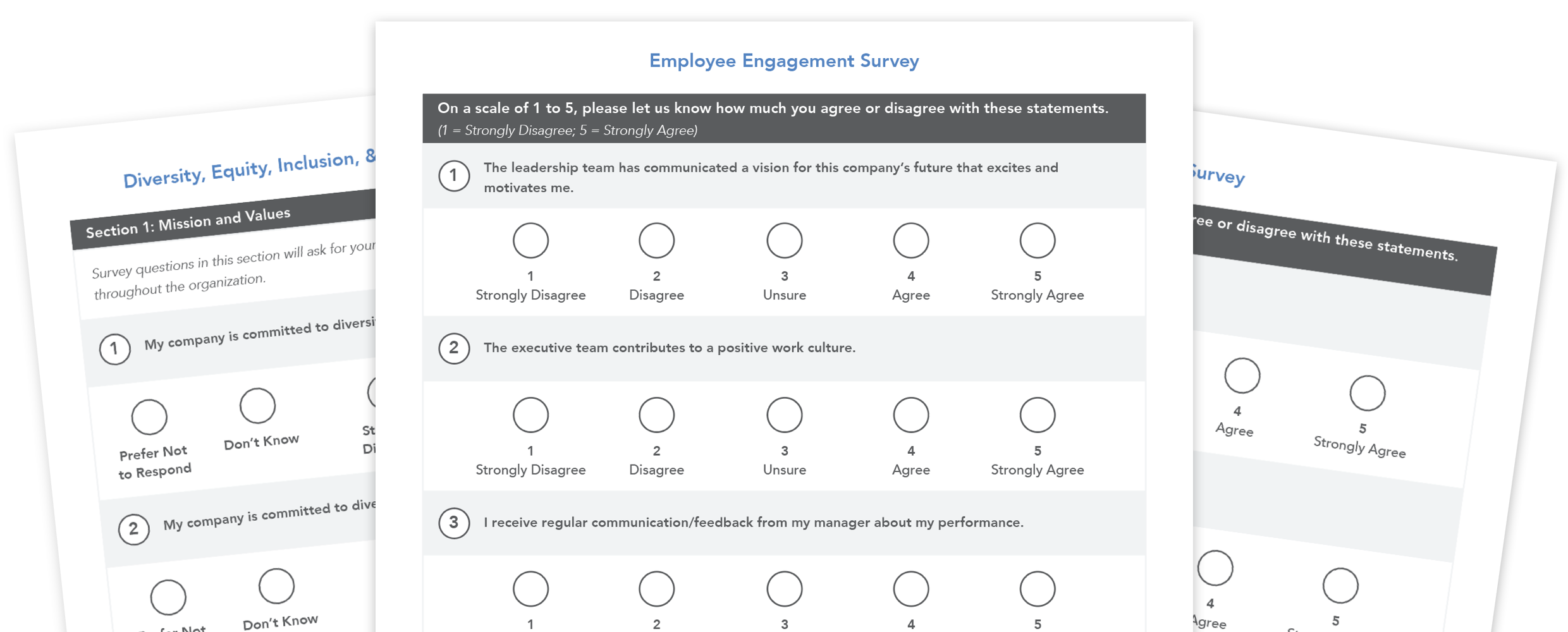This is Part 3 in a three-part series about employee one-on-one meetings. Read Part 1 and Part 2.
If you’ve followed our 1:1s At Work series, you’ve learned why one-on-one meetings are important and picked up some tips for how managers can conduct effective one-on-ones. Now, in the third installment of the series, we’re sharing 16 one-on-one questions for managers to ask their employees.
Managers need to take an active role in facilitating one-on-one meetings by asking good questions and setting the right tone. It’s important to get them invested since weekly one-on-ones, and involved managers can make or break employee engagement. But one-on-ones have a different goal than performance reviews or even status update check-ins.
According to Harvard Business Review, employees should be talking for at least half and as much as 90% of the time during one-on-ones. Whether weekly check-ins are a new strategy at your company or a staple across departments, it doesn’t hurt to give managers a few talking points to kick off good discussions and maximize the time.
Try these 16 one-on-one meeting questions to help managers lead more productive conversations.
Employee #OneOnOne meetings can be more productive when managers ask the right questions. Get 16 questions to guide the conversation:Personal Check-In Questions
One of the biggest benefits of employee one-on-ones is that they can help managers build trust with their direct reports. But, as you learned in Part 2 of this series, managers have to take an active role in making those relationships happen. One way they can do this is to ask questions that show employees they care about how they’re doing on a personal level.
Asking these questions is important because employees’ lives outside of work impact their work — when they aren’t thriving in their lives, they are 61% more likely to experience burnout “often or always.” If managers are in tune with how employees are feeling, they’re more likely to notice signs of burnout before they lead to poor performance or worse, resignation.
Managers can ask these questions to build rapport with their team members:
- How are you doing outside of work?
- How do you feel about your current work-life balance?
- What’s most important to you to talk about today?
Work Check-In Questions
One-on-one meetings allow employees to share what’s going on at work beyond daily updates. Managers can find coaching opportunities, like helping their reports through obstacles they might be facing or giving advice on how to navigate relationships with colleagues. They can also make sure employees have everything they need to do their job, including access to the right resources, accommodations, and information.
Managers can ask these questions to learn how to best support their employees:
4. Do you have the tools you need to do your job? If not, what is missing?
5. Do you have all of the information and context you need to do your job? If not, what is missing?
6. How are your relationships with your team members and/or colleagues you’re working closely with?
Manager Feedback Questions
Weekly check-ins can help employees feel comfortable bringing up more difficult topics and offering constructive feedback to managers. This doesn’t come easily to everyone, however, so managers can ask some questions to prompt the discussion — and gain important insight into how they’re doing as leaders. Asking for employee feedback helps managers grow their own leadership skills, and it leaves employees feeling 4.6x more likely to be empowered to do their best.
Get your team talking with these open-ended questions:
7. Do you get enough feedback from me? If not, how much more often would you like to receive feedback?
8. What feedback do you want to share with me?
9. In what ways can I best support you at work?
During #1:1s, managers should ask for #employeefeedback. Use these questions to kick off the conversation:Growth and Development Questions
One-on-one questions about employees’ career goals are great for managers to keep top-of-mind. These can help managers give better advice and offer coaching and feedback that employees can use to further their goals. The answers also help managers identify opportunities their employees would be a good fit for, like promotions or career development programs, which can increase engagement by up to 15 percent.
Try these three questions to support employees’ long-term goals for growth:
10. What is your favorite part of your job?
11. What are a few new skills you’d like to develop over the next year? Two years? Five years?
12. Are there any courses or certifications you’d like to earn?
Motivation and Engagement Questions
One-on-ones are a good opportunity to both check in on employee engagement levels and give their team members some motivation. While the meetings themselves are great for engagement, managers should use the time to monitor engagement regularly and be proactive to keep it high.
Managers have to stay on top of their reports’ engagement levels, or it will almost certainly suffer — research shows that they are responsible for 70% of the variance in engagement. They can start by asking these questions in one-on-ones:
13. On a scale of one to 10, how satisfied would you say you are with your current role and job duties?
14. How do you feel about your current goals?
15. Do you feel you understand company goals and where your work fits in?
16. What excites you about your role? About the company’s direction?
No matter which of these one-on-one questions your managers ask, they should always remember to follow up with employees and keep these essential recurring meetings on the calendar. They’ll reap the rewards of an engaged team that trusts their leadership and isn’t afraid to ask tough questions or give their own valuable opinions.
Give your managers the tools they need to guide engaging one-on-ones with ClearCompany’s new 1:1 Workspaces feature, available in our robust Performance Management System. 1:1 Workspaces offers private and shared notes, collaborative meeting agendas, and action items to get employees involved and enable managers to follow up on these important conversations.
You can try out 1:1 Workspaces, the newest addition to the ClearCompany Performance Management Suite, by signing up for your personalized demo today.



